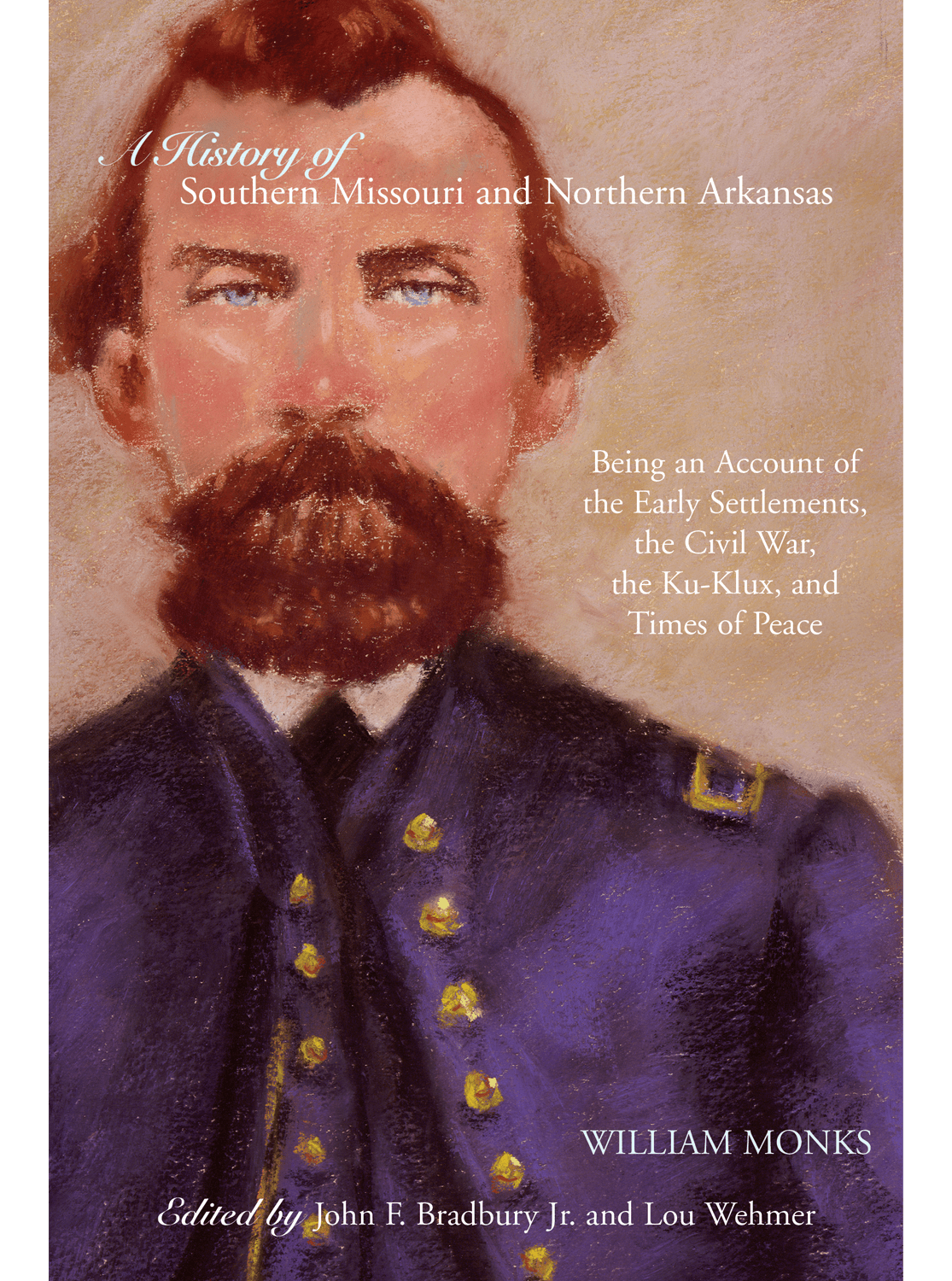Originally published in 1907 and now reprinted for the first time, this is the only account published by a Union guerrilla in the border region of the central Ozarks, where political and civil violence lasted from the Civil War well into the 1880s.
There were probably many people who wanted to shoot Billy Monks. He was a Union patriot and skilled guerrilla fighter to some, but others called him a bushwhacker, a murderer, and a thief. His was a very personal combat: he commanded, rallied, arrested, killed, quarreled with, and sued people he knew. His life provides a striking example of the cliché that the war did not end in 1865, but continued fiercely on several fronts for another decade as partisan factions settled old scores and battled for local political control.
This memoir was Monks’s last salvo at his old foes, by turns self-defense and an uncompromising affirmation of the Radical Union cause in the Ozarks. The editors include a new biographical sketch of the author, fill in gaps in his narrative, identify all the people and places to which he refers, and offer a detailed index. Monks himself illustrated the volume with staged photographs of key events re-created by aged comrades who appear to have been just barely able to hoist the muskets they hold as props.
Listen to editor John Bradbury on “Our Missouri,” the podcast of the State Historical Society of Missouri.
John F. Bradbury is the senior manuscript specialist at the Rolla branch of the University of Missouri Western Historical Manuscript Collection. He is the author, editor, and compiler of many articles on the Civil War in the Ozarks.
Lou Wehmer is the chairman of the South Central Missouri/North Central Arkansas Civil War Roundtable.
“Monks had been involved in so many blood-curdling controversies and adventures that he felt obliged to reminisce for those yet unborn. In reissuing this gripping account . . . the editors deserve gratitude and praise for their efforts and foresight.”
—Missouri Historical Review
“The book begins with a sentimental description of pioneering days of milk and honey in the 1840s and 1850s, but these saccharine remembrances are soon displaced by vignettes of violence . . . whiskey-fueled brawls . . . [and the] horrors of guerrilla warfare.”
—Journal of the West
“A riveting story and a valuable research tool.”
—Daniel Sutherland, Civil War in the West series editor
“William Monks’s compelling memoir of the Civil War and its aftermath in Missouri and Arkansas contains little about marching armies and set-piece battles, but it presents a fascinating account of ordinary people caught up in extraordinary times. Here is a glimpse of the real war in the Trans-Mississippi where arson and ambuscades were commonplace events and everyone had a score to settle.”
—William Shea, co-author of Pea Ridge: Civil War Campaign in the West
“The Civil War in the West has a single goal: to promote historical writing about the war in the western states and territories. It focuses most particularly on the Trans-Mississippi theater, which consisted of Missouri, Arkansas, Texas, most of Louisiana (west of the Mississippi River), Indian Territory (modern day Oklahoma), and Arizona Territory (two-fifths of modern day Arizona and New Mexico) but encompasses adjacent states, such as Kansas, Tennessee, and Mississippi, that directly influenced the Trans-Mississippi war. It is a wide swath, to be sure, but one too often ignored by historians and, consequently, too little understood and appreciated.
Topically, the series embraces all aspects of the wartime story. Military history in its many guises, from the strategies of generals to the daily lives of common soldiers, forms an important part of that story, but so, too, do the numerous and complex political, economic, social, and diplomatic dimensions of the war. The series also provides a variety of perspectives on these topics. Most importantly, it offers the best in modern scholarship, with thoughtful, challenging monographs.
Secondly, it presents new editions of important books that have gone out of print. And thirdly, it premieres expertly edited correspondence, diaries, reminiscences, and other writings by participants in the war.
It is a formidable challenge, but by focusing on some of the least familiar dimensions of the conflict, The Civil War in the West significantly broadens our understanding of the nation’s most pivotal and dramatic story.”
—Daniel Sutherland, from the preface of I Do Wish This Cruel War Was Over

